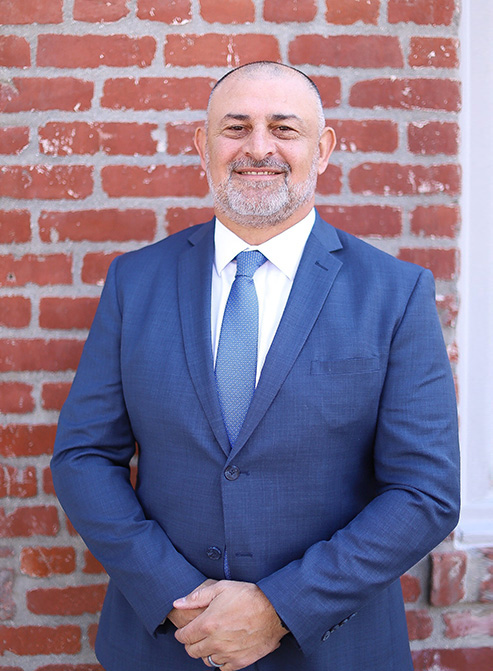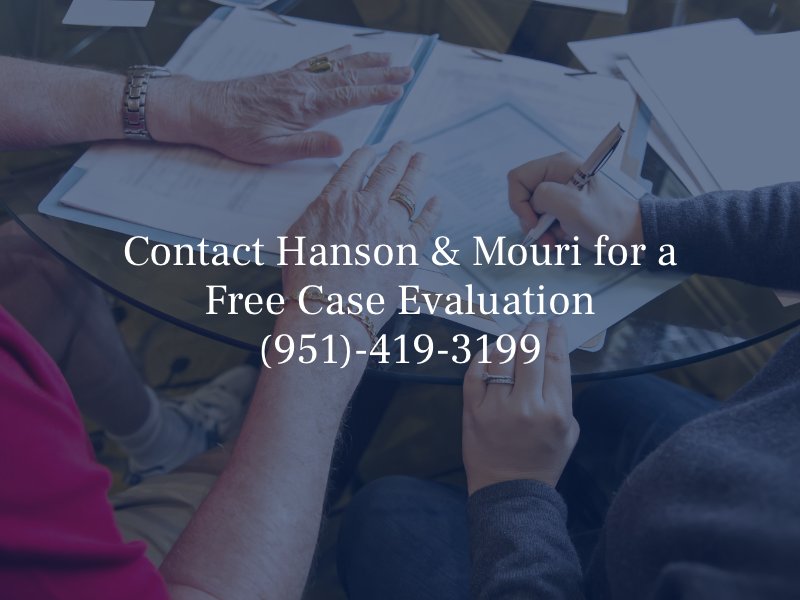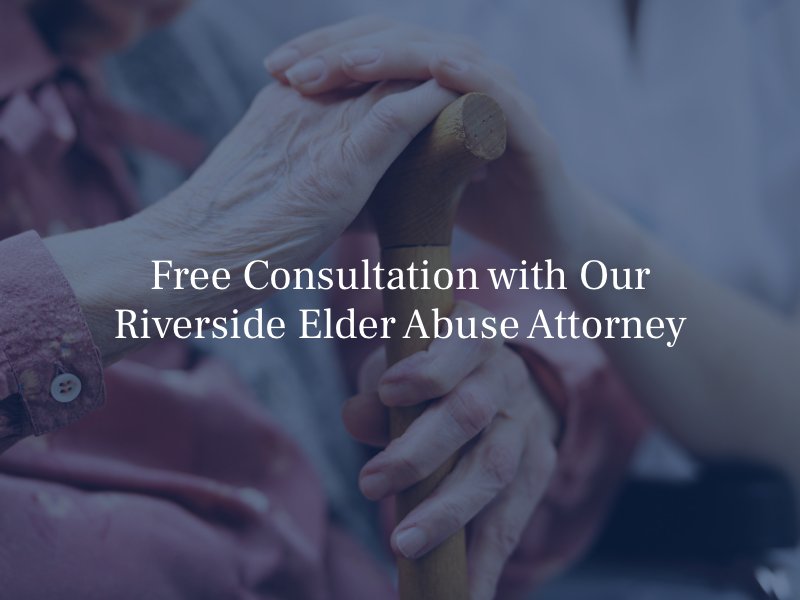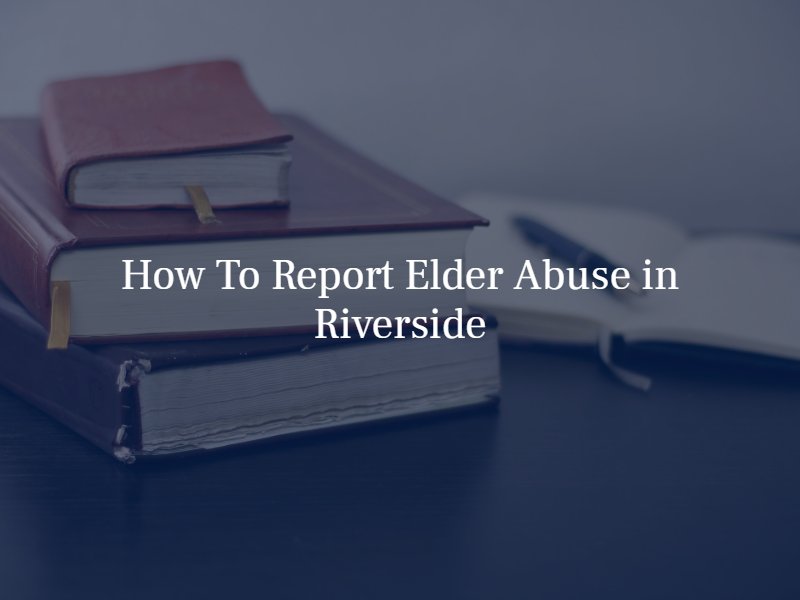
Riverside Elder Abuse Attorney
CLICK FOR FREE CONSULTATIONNursing home abuse and neglect of the elderly is devastating both physically and emotionally to the victim and their family. No person deserves to suffer at the hands of another, especially at the hands of their caregiver. If you or a loved one have been the victim of nursing home abuse or neglect and have questions about your rights, you need the experience of a qualified Riverside elder abuse attorney.
Why Choose Riverside Elder Abuse Attorney Dani Mouri

Our lead attorney has over 20 years of experience and utilizes his knowledge as a former insurance defense attorney to obtain maximum compensation in nursing home abuse cases. You will be provided with personal and attentive care from start to finish.
“He did a great job! I would recommend him to anyone who needs an attorney.” -K.I.
An attorney, not a paralegal or assistant will answer your questions and stay in close communication as your case progresses.
Our seasoned litigators are ready to take a case to trial if necessary. We will fully review the details of your case and prepare it for trial even if a settlement is achieved outside of court. We have never lost a litigated case.
You are not required to pay any upfront legal fees as we work on a contingency basis. You will only pay fees if compensation is secured on your behalf.
 Our Inland Empire Law Offices specialize in nursing home abuse and neglect cases taking place in nursing homes with under-qualified and unqualified caregivers. Whether you or your family member has suffered from physical, verbal, or emotional abuse and neglect, we have the expertise to represent you and your family.
Our Inland Empire Law Offices specialize in nursing home abuse and neglect cases taking place in nursing homes with under-qualified and unqualified caregivers. Whether you or your family member has suffered from physical, verbal, or emotional abuse and neglect, we have the expertise to represent you and your family.
Riverside Elder Abuse Resources & FAQs
- Why Hire a Riverside Elder Abuse Attorney?
- When is a Nursing Home Liable for Elder Abuse?
- Is There a Time Limit on Filing an Elder Abuse Claim?
- What is an Elder or Dependent Adult Based on California Law?
- How Can I Report Elder Abuse in Riverside?
- How Does a Lawyer Collect Evidence for My Elder Abuse Case?
- Elder Abuse Statistics
Why Hire a Riverside Elder Abuse Attorney?
Sadly, elder abuse is becoming more and more common in California. Unscrupulous caregivers find it easy to abuse the elderly due to their frail condition and in many cases, impaired cognitive function. Elder abuse is defined as any knowing or negligent act that results in the harm or potential of harm to an elderly person. While some forms of elderly abuse carry criminal penalties, damages may also be recovered by victims of elderly abuse. Reasons for hiring an attorney to handle your elder abuse case include:
- Nursing home abuse cases can be complex in the matter of determining liability. Preparing a case against the nursing home should be left to a highly experienced attorney that is ready to take the case to trial if needed.
- Elder abuse may involve knowledge of specific medications and how these medications, in different quantities, affect the health of the elderly. We will be able to call in medical experts as necessary to review whether your loved one has been over-medicated.
- Filing a claim or lawsuit against a nursing home that is allowing abusive practices to occur can resolve the situation, and help other families avoid enduring similar harm, pain and suffering.
A great attorney. Very professional and great in his field. The whole staff were perfect and I was never disappointed. I would definitely recommend. -Elizabeth B.
When is a Nursing Home Liable for Elder Abuse?
Nursing homes are required by law to provide residents with a reasonable level of care based on the 1987 Nursing Home Reform Act, state laws, and industry standards. Any deviation from the appropriate standard of care that harms a resident can make the nursing home liable for any resulting damages. Here are some examples of negligent acts that a nursing home or its staff may be held responsible for:
- Failing to staff nursing homes adequately
- Failing to screen the hired staff members properly
- Inadequate training
- Falsely claiming to provide superior care while cutting costs
- Cutting costs to the point that the care is inadequate
- Abusive verbal communications
- Abusive physical handling of the elderly
- Improper use of physical or chemical restraints
- Failing to provide adequate nutrition and fluids
- Medication errors
- Negligent security leading to attacks and/or theft of property
- Intentional abuse by staff members
Family members and friends of nursing home residents must stay alert to any warning signs in order to expedite action when suspicions arise.
Is There a Time Limit on Filing an Elder Abuse Claim?
If you are considering filing an elder abuse claim in Riverside, it is crucial to know how much time you have to pursue a lawsuit. All civil lawsuits are subject to a “statute of limitations,” limiting the time victims have to recover compensation. Most elder abuse and neglect cases are filed as negligence claims, which under California law, you are entitled to bring a lawsuit within two years of the date the injury was discovered or reasonably should have been discovered (California Code of Civil Procedure section 335.1).
Figuring out when this clock starts can be challenging in nursing home abuse cases since abuse or neglect is typically ongoing rather than a single incident. A nursing home abuse lawyer can help with this matter and determine precisely how long you have. Victims or their families who miss this window are barred from recovering compensation.
What is an Elder or Dependent Adult Based on California Law?
An elder under California law is someone 65 years old or older. A dependent adult is someone between 18 and 64 who has certain mental or physical disabilities, keeping them from being able to do everyday activities or protect themselves.
Nursing home abuse and neglect can manifest itself in many forms and all violate the rights of the individual being cared for. Some of the signs of nursing home abuse are:
Physical Signs of Abuse
Physical abuse can involve any type of assault and battery, including being hit with objects, punched, burned, kicked, bitten, pinched, slapped, pushed, shaken, unreasonably physically restrained, chemically restrained, or forced to take psychotropic drugs for any purpose not consistent with that authorized by a physician, or suffering any other kind of intentional harm.
Warning signs: Unexplained injuries such as open wounds, cuts, bruises, welts, fractures, sprains, marks on wrists or other signs of restraint, being given too much or not enough medication.
Sexual Abuse
Sexual assault and battery, rape, or any type of non-consensual sexual contact between a nursing home staff member and a resident.
Warning Signs: Bleeding from the genital area, torn or bloody clothing or undergarments, bruises, unexplained sexually transmitted diseases (STDs) or genital infections, withdrawal, anger, depression, or other emotional changes.
Emotional Abuse
Any use of words or actions to threaten or intimidate a resident can be considered emotional abuse. Unfortunately, emotional or psychological abuse is prevalent in nursing homes. It is often inflicted by staff members bullying or harassing residents, teasing, humiliating, prohibiting social activities, forcing a resident to stay in a confined area, or not allowing visitors or time with family.
Warning Signs: Changes in behavior or personality, withdrawal, depression, nervousness, anxiety, or frequently arguing with the staff.
Neglect
Neglect can be a less obvious form of abuse, which often makes it harder to prove. Nursing home staff may intentionally neglect a resident, or it can happen unintentionally. For example, the staff may be stretched thin and not realize that a resident has suffered a prolonged or continual deprivation of food or water. However, there is no excuse for improper care that brings harm to a resident.
Warning Signs: Bedsores, drastic weight loss or malnutrition, dehydration, deteriorating health, poor hygiene, smelling of urine and/or feces, stained or bloody clothing or bedding, infection, or being prohibited from visitors.
Healthcare Abuse
Healthcare abuse and fraud in nursing homes frequently involve unlawful or improper medical billing. Medicare, Medicaid, and private insurers that fund the care of nursing home residents are vulnerable. Some examples include:
- Phantom billing— bills for services or care that is either unnecessary or not performed.
- Double billing, upcoding, or up-billing—expensive and unnecessary procedures or supplies are billed for more than what was actually performed or used.
- Billing for medically unnecessary or uncovered services or goods.
- Selling unused drugs or medical records.
Warning Signs: being under-medicated, incorrect type or administration of medication, duplicate bills for the same appointment, prescriptions, or procedure, inappropriate billing, inaccurate information on an explanation of benefits paperwork, the provider, location or date information is wrong on a bill, deductibles being or co-payments being waved.
Financial Abuse
Financial abuse or financial exploitation is the improper or illegal use of a resident’s funds, assets, or property. Nursing home patients are often more vulnerable to financial abuse and are often unaware of it. Nursing home employees may cash a resident’s check without permission or authorization, forge a signature, steal or misuse a resident’s money or possessions, deceive or coerce a resident to sign documents such as a contract or will, or improperly use guardianship, conservatorship, or power of attorney.
Warning Signs: Sudden and significant bank withdrawals, changes in regular banking habits, abrupt changes to a will or estate plan, or personal possessions disappearing without an explanation.
How Can I Report Elder Abuse in Riverside?
If you become aware of or suspect elder abuse or neglect, it’s always good to reach out through the proper channels and ensure that an elder or dependent adult does not continue to be put in harm’s way. If there is no intervention, abuse and neglect can continue to escalate, so it is best to err on the side of caution.
- Call 9-1-1 immediately if you believe an elder is in danger and requires emergency medical care.
- Call the 24/7 Long-Term Care Ombudsman CRISISline if you do not believe calling 911 is necessary, but it is an emergency, or you need an immediate response for a nursing home resident in Riverside County.
- 1(800) 491-7123
- Call the local Riverside Ombudsman office to report nursing home abuse or neglect if it is not an emergency.
- 1(833) 772-6624
A Long-term Care (LTC) Ombudsman can act as an advocate for nursing home residents. They listen to and address any concerns or complaints. Residents have the right to decide on the Ombudsman’s level of involvement. They can be counted on to respect residents’ privacy and confidentiality. How an LTC Ombudsman serves residents includes empowering them by telling them about their rights and providing support to them and their families while discussing concerns with staff. Ombudspersons must complete a 36-hour state-supported training to become certified and an additional 12 hours of training each year to remain certified.
How Does a Lawyer Collect Evidence for My Elder Abuse Case?
The moment you suspect that nursing home abuse is occurring, document any signs and incidents. Take photos of injuries or tangible warning signs, and gather any records you have access to that could indicate abuse, neglect, or financial exploitation. You may be convinced that your loved one is not receiving adequate care, but you will need solid evidence of negligence for a successful claim.
When working with a nursing home abuse lawyer, they have the resources to investigate and collect critical evidence that supports your allegations. Depending on the circumstances of your case, an attorney may help you gather the following types of evidence:
- Documents that detail the facility’s hiring and training practices
- Records on staff that may indicate the facility being constantly understaffed
- Inspection reports
- Statements from other residents who may also be victims of abuse, and any possible eyewitnesses such as family members
- The victim’s medical and billing records
- Medical expert testimony on the extent and severity of the resident’s injuries or condition
- Security footage, if available
- Keycard data that shows whether staff entered the victim’s room, which may be evidence of inadequate attention
- Banking records
While families may naturally want to confront the nursing home staff or management regarding suspicions of abuse or neglect, it could actually derail the investigative process. The resident’s conditions may temporarily improve, or the staff could respond by increasing their efforts to cover up any warning signs. Corrupt administrators may hide or destroy evidence and take control of the process. Before taking action, it is best to get advice from an attorney familiar with the reputations of long-term care facilities in the area.

Elder Abuse Statistics
According to the Department of Justice:
- 14.9 percent of the population are 65 years of age and older. It is projected that this statistic will continue to grow.
- 10 percent of older adults will experience some form of elder abuse annually. Some elder individuals will experience more than one type of elder abuse at a given time.
- Elder abuse can result in various health issues such as deterioration of health, depression, suicide, financial loss, loss of quality of life and loss of independence
- Caregiver neglect makes up 5.1 percent of elder abuse while financial exploitation comprises 5.2 percent of all elder abuse cases. Psychological abuse follows at 4.6 percent of all elder abuse cases. Although rare, physical and sexual abuse make up 2.2 percent of all elder abuse cases.
- Baby boomers are migrating to rural areas where elder abuse is reported far less. It is projected that the number of older adults moving to rural communities will continue to increase over the next decade.
- Risk factors such as dementia are far more prevalent amongst elder individuals that live in rural settings.
- Per every 10,000 residents in a rural setting, there are 26.1 cases of elder abuse. Per every 10,000 residents in an urban setting, there are 24.1 incidents of elder abuse.
Contact Us Today
Contact our law firm now, there is no charge for your consultation, and we will listen to your case. We will keep you informed of significant developments and provide legal services promptly and professionally. You and your loved ones deserve to have your rights protected by a professional. Hanson & Mouri Riverside personal injury attorney can work to make your family whole again. We also serve injury victims in San Bernardino, and wrongful death victims in San Bernardino.
Our law office serves Riverside, Corona, Norco, Temecula, Murrieta, Lake Elsinore, Hemet, Banning, Beaumont, Moreno Valley, & Calimesa.

